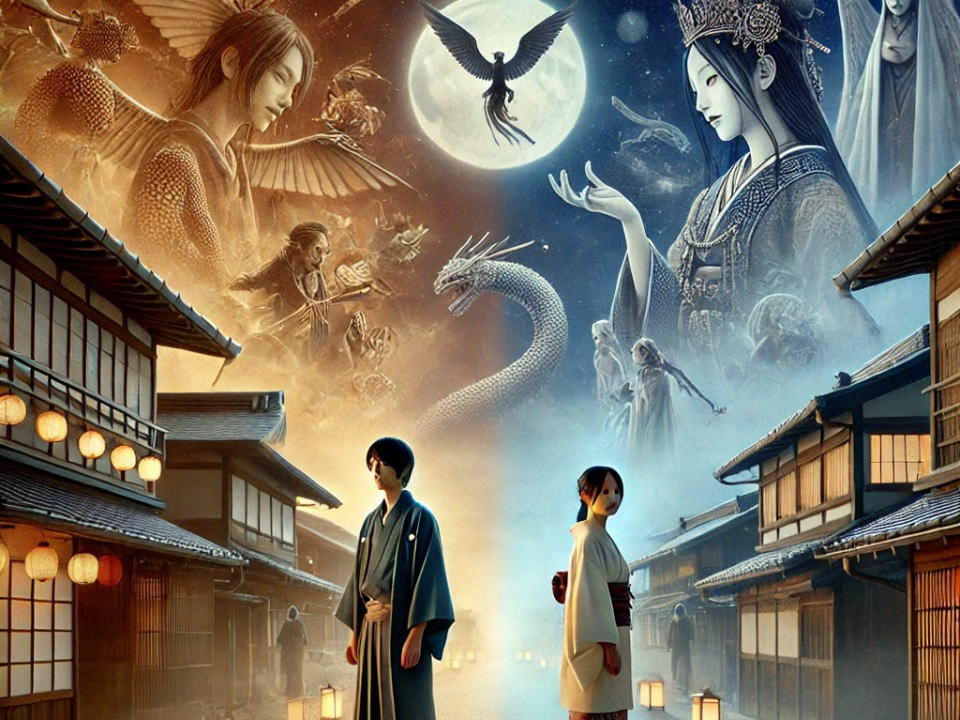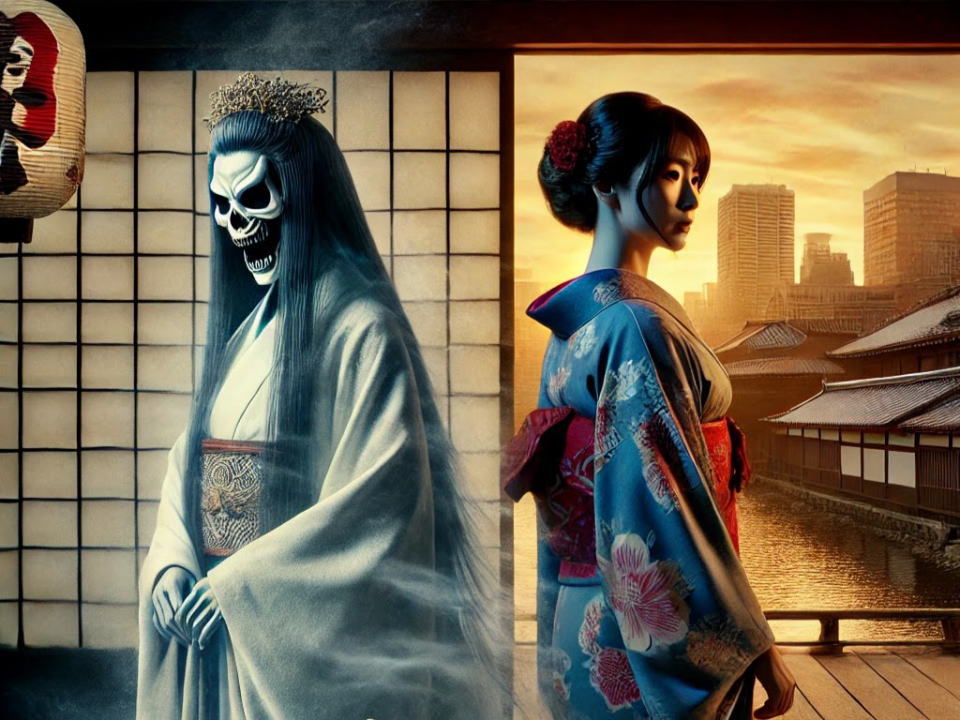
The NHK morning drama Bakebake tells the story of Lafcadio Hearn (Koizumi Yakumo) and his wife, Koizumi Setsu.
Through their lives, the series explores the depth of Japanese culture and the beauty of cultural exchange.
One of the central themes of this drama is "transformation" (化ける / bakeru).
However, this concept is not limited to the transformation of ghosts and yokai.
Instead, Bakebake is expected to depict transformation as a symbol of changes in society, values, and even human lives.
1. The Multifaceted Meaning of “Transformation”
(1) The Transformation of Yokai and Ghosts in Kaidan Stories
Lafcadio Hearn’s famous work Kaidan contains many stories about supernatural beings that change their forms.
Examples include the Yuki-onna (Snow Woman) and Mimi-nashi Hoichi (Hoichi the Earless), where ghosts and yokai appear in different shapes.
These stories have been passed down for generations, reflecting human fears and reverence for the unknown.
The Changing Forms of Ghosts and Yokai
One of the highlights of Bakebake will be how these supernatural creatures from Hearn’s stories are portrayed.
Symbolizing Inner Transformation
The drama may use these supernatural beings as a metaphor for human emotions and inner changes.
(2) Transformation as a Symbol of Cultural Collision and Fusion
Hearn was born in the West but deeply embraced Japanese culture, ultimately choosing to live as a Japanese citizen.
This journey can be seen as a form of "transformation" itself.
Identity Shift
Hearn gradually adopted Japanese customs and values, making a conscious decision to live as a Japanese person.
Cultural Adaptation and Change
The drama may also depict how Meiji-era Japan struggled to balance Western influence while preserving its own traditions.
(3) The Transformation of Women’s Roles
Koizumi Setsu was a traditional Japanese woman, yet she supported and assisted her foreign husband’s literary career.
Breaking Traditional Norms
Her life was unusual for a woman of her time, redefining the role of women in a marriage.
A Message for Modern Viewers
The theme of finding one’s place in society will likely resonate with audiences today.
2. Bakebake as a Bridge Between the Past and Present

(1) Connecting History with Modern Society
Although Bakebake is set in the Meiji era, its themes remain relevant to contemporary society.
Lessons from History
By exploring cultural exchange and changing values, the drama encourages viewers to reflect on multicultural coexistence in today’s world.
Balancing Tradition and Innovation
Just as the Meiji era struggled to preserve traditional culture while modernizing, the drama itself serves as an effort to bring historical stories into a modern context.
(2) The Positive Side of Transformation
In traditional Japanese ghost stories, transformation is often associated with fear or tragedy.
However, Bakebake may take a more positive approach, presenting transformation as a necessary step toward growth and self-discovery.
Change as a Part of Growth
The drama may highlight the importance of embracing new values and perspectives.
The Power of Adaptability
It may also emphasize the ability to evolve and adapt, rather than being bound by rigid traditions.
3. Bakebake’s Message for the Future
(1) The Modern Significance of Lafcadio Hearn’s Philosophy
Hearn’s love for Japanese culture continues to inspire people around the world today.
The Importance of Cultural Understanding
Respecting and coexisting with different cultures remains a crucial theme in modern society.
Preserving and Evolving Traditional Culture
The drama may encourage audiences to think about how to pass down Japanese folklore and values in a way that remains meaningful for future generations.
(2) A Question for the Viewers
The drama may ask its audience: "What will you transform into?"
Identity in the Modern World
The show could provoke thought on contemporary issues such as work-life balance, gender roles, and cultural identity.
Embracing Change for the Future
As times change, the drama may encourage viewers to accept transformation as a natural and necessary part of life.
Conclusion
The theme of "transformation" in Bakebake goes beyond the supernatural elements of ghosts and yokai.
It serves as a symbol of cultural fusion, personal growth, and societal evolution.
Through the story of Yakumo and Setsu, the drama delivers a timeless message that resonates even in the present day.
It reminds us that change is not something to fear—it is a gateway to new possibilities.
Reference
https://www.hearn-museum-matsue.jp/ (Lafcadio Hearn Memorial Museum)
https://www.kankou-matsue.jp/ (Matsue City Official Tourism Website)
https://www.jnto.go.jp/ (Japan National Tourism Organization)
